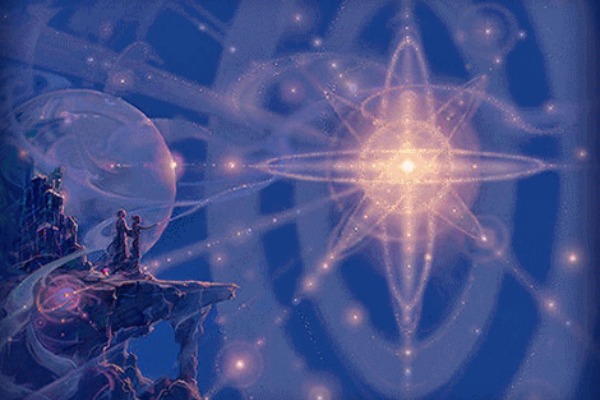Question:
Dear Teachers,
This morning I was wondering about some people I have met with or known, or for that matter, folk that I've only just learned about who are tremendously developed in some ways and yet quite obviously deficient in others. The development appears to be lopsided, that even with these grand souls - remarkable individuals - their 'faults and flaws' appear to remain.
My question has a few parts to it please: Firstly I understand that I am not a reliable witness to any other man's faults, however I believe that these people that come to mind would (for the large part) admit to them (or to others), and so I ask, do we go forward with some talents further and further, and yet destined to have some aspects left wanting always.
Also, we have been taught of the short road to perfection where a man shears off his lower nature altogether and submits his higher being into a 'sweet Nirvanic death' - how then should we fight this urge and yet wish for perfection if it is unattainable?
It has been suggested that we should be compassionate towards ourselves, and learn of the weak spots, and then we are 'safe' from them overcoming us.
Finally - are men 'allotted' their differing problems, and are we so different in all of this in the big and small picture, short and long term?
Thank you for your consideration of this.
NOT all men will go on to become better men. Not all men will exceed their brother's striving; yet some will advance having gained (unwillfully) because of some other's failing.
Never was there such a saying so true as: be careful for what you wish for - and wish well! Men are too easily content with small and mean wishes. Half of their difficulty is in their belief of nonsense, i.e. that one's destiny is nonexistent, that life is haphazard and random and therefore outcome is also. The other half to their problem is that they cannot creatively work upon a new destiny, for they have been no respecters of the meanings brought before them, presenting ever and ever again, requesting a man to 'awaken' within his being rather than shut down into a familiarity which quietens the enthusiasm for life itself, and therefore disperpetuates the receiving and giving of more life - being further destiny.
Very seldom one finds a man who is 'balanced' within all of his virtues, and this having been so, he is generally found to be mindless also - without thought, without the abilities required to reason with criticism and comparison - an idiot. These incarnations are useful, and not put to waste; and although not all idiots are balanced within their virtues, there is where you will find the closest thing to what you are looking for in perfection emanating out from a man; or rather, Angelic Man.
All men as babies starting off in life are angelic too, they exude virtue, but not with a balanced concentration (an infant can be impatient for example, whereas also it fully loves in the complete sense of the word, and adults do realize this and respond to this concentration of pure love emitting from the being of the child).
Firstly we must ask: who ever said that 'balance' is a desired prerequisite for perfect Man? Need a man be perfect in every attribute so given to qualify in his development? We do not believe this to be so. The criterion for perfect Man is just like it is with perfect baby: it is love alone.
Secondly, a man may improve his technique, he may build upon that which he has already known and then inquire further; however this will always mark gradient improvement and not become as a new acquisition to him.
The ability to think appears to be a great distinction concerning the differences between modern men and primitive men. Worldly thinking (which is splendid coincidentally) develops quite readily where language and bodily circumstance permit. If a soul incarnates within a particular town into a body quite suited, then participating with thinking can be picked up most easily. Equally, should a soul incarnate into a body which has not the capabilities there (etherically also), or has grown up with wolves for example’s sake, then he shall have no difficulty in not thinking; being quite content with the sensual world and all of its impressions physically and soulfully.
We may be mistaken about a man and his overall development if we are to judge him purely by his fluency with thinking. To degrees he is quite affected by social circumstance and responsiveness of intellect also - interacting upon exposure. So it is very true that the forming of certain concepts and our prowess with managing our thoughts is acquired for the most part from the other thinkers around us to whom we exercise our reasoning with. Once again this is no true indication of a man and his overall and ongoing development.
Furthermore, very intelligent men may expire much of their thinking with narcotics and the like - bringing a soul-death to those forces which would otherwise bring in a divine connection between thought and its reality. Here we find that even brilliant men can cease their radiance with their minds becoming as tarnished as silver once true.
Yet it is by way of our thinking that we can enjoy our relationship present and future, with knowledge and its wisdoms. Our thinking services our egos in a way that only it can do. It is not confined to this World, it is not to be found in a brain, even though a defective brain will inhibit the capabilities whilst the soul is conscious and attached to that body.
Our thinking in the spiritual realms comes from our observational skills here. It is also adherent to the thinking which goes on without us. This is an interesting point because in Heaven there is thinking that one may 'overhear' and consider well, becoming so absorbed as it were, that often individuals believe it to be that of their own.
In other words, good thinking is shared. Sequential thinking, logical and progressive thinking goes on into the expanses. It may not be current either. It may have been 'thought' a very long time ago, but still heard. Out there in the waters of space there are many, many, many stanzas of pure thinking, riding backwards and forwards with the tides.
To learn to observe effectively within this world we must hold a loving interest and be non-critical of its being. Criticism features certain particulars, cites them and concentrates upon that very picked out particular. Observation at its best is something which can take on the whole landscape even with its indefinable lines and hues and blendings, for which our lenses are both focused yet relaxed, but not narrowed.
Worldly thinking is narrow, yes, but within the spiritual worlds the thinking there is anything but narrow. It is precise, it can be pure, but it always leads on to wider vistas - something a critical eye does not.
So our question to follow on from here is, to what purpose is thinking within this world if impartial observation is indeed what leads to our thinking within the spiritual worlds? Our thinking, when it is coincidental to actuality reaffirms our egos in a binding way which incorporates the consideration. The thinking we experience in Heaven will come and go - the waves do wash over us, and though beauteous in the moment it requires great adept adroitness to contain much of their meaning.
So our definitive thinking in analysis, with observation pure and observation in contrast (with criticism), in debate and with aspiration, this definitive thinking brings properties into our egos and begins to form our future destinies.
To say that a man should be compassionate about himself is correct. As issued above, it is the love that is paramount to all else; and it is with a love of self we may alleviate the criticisms that spike and spur and worsen the weaknesses. They do this because criticism intensifies that which it is highlighting - by bringing attention to something, it becomes outstandingly more apparent. When this is to do with a fault within ourselves or a judgment upon another we are causing grave insult because it will only promote the problem concerned. This is so.
The only remedy for this is remedy itself, issued at the same time. In other words, if we make a differentiation into the negative with something (anything) we are obliged to counter it with a thoughtful protest and healing of an answer; remembering also that when we cause harm to something (which, as explained, criticism does when applied alone to faults and flaws) then we are implicated also in further experience until set aright.
The first and complete healing is Love itself. A man however cannot reasonably love all men or himself during periods of aggravation. If he is aggrieved by some extraordinary problem which he calls to mind and picks the flaw, then it will be difficult for him to see past that flaw and through to the man to whom he would love were he to know him completely.
Perhaps we should examine for a time what the definition of fault and flaw could be? Perfect tension runs contrary to the Universe. Perfect balance can cause annihilation. For every being, every soul so made, there could not be a mix which corresponded with a tension made impartial unto itself - this would cause great expiration. Sometimes the earth will give way to small flaws that it may have great movements and save itself from becoming rendered in two by one almighty crack caused by such perfect tension. In a man this is so also. His constitution was such ere the beginning, and although certain faults as perceived are typical of circumstance or transitory experience, there shall be imperfect marks within his corporeal enterprise which will not take on the light or the aspect which otherwise would have infilled him. However, we are causal also to others. We need not be that representative of a perfect humanity all on our own.
This is the grand point here to be had. The Christian path has accepted men as they are in the present, through the collective Christ who has sought to shoulder all ills. The path for perfection without our Christ brings men to isolation at best and into annihilation at worst. Christ has incorporated us into His Ego, just as we in lesser ways incorporate our beloved into ours.
There shall be outstanding individuals whose destiny and perseverance will carry them further than the majority of their brothers. Some achievements will be greater, some in their masteries will become as gods. However and regardless of their imperfections their one way in will be through love, for it alone can answer the incongruities stark and apparent. Bring true love unto another and you will boost them into that greater destiny, but offer them criticism and you appeal to further their ache and aggravation. Sometimes discriminatory thinking is confused with criticism and further judgment. It is good for a man to recognize that which he does not wish to become, however comparisons that are unkind are devoid of the remedy required with their presentation.
This may seem as though it offers little to answer the questions and yet the effect is great and lasting. We are to know that if one is serious about this path of progression (joining the front-runners) then one's own remedy lies in attitude and application concerning the weaknesses of others. Let them pass... commit them to God... forgive them and forgive your own offense...
Develop your strengths and delight in them (therefore bringing them more life)... and always hold before you the happiest and highest possibility to be realized, learning to be able to wish well.
















